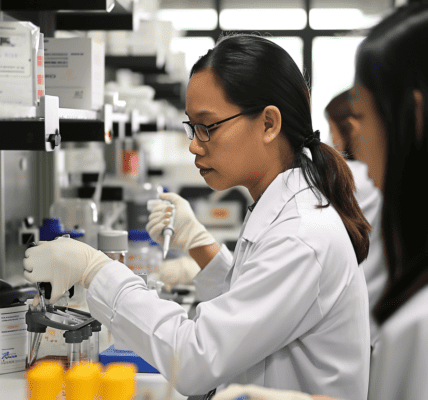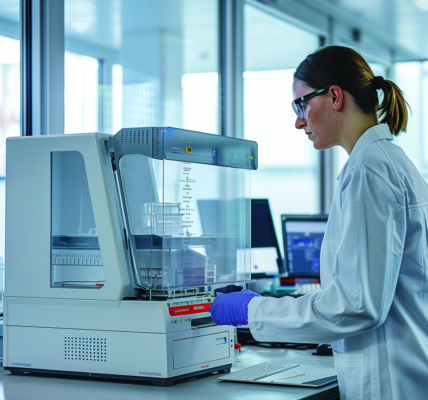Recent research published in Nature has uncovered a potential breakthrough in the treatment of acute leukaemia. The study, conducted by a team of researchers led by Qingyu Luo, focused on the role of phosphoinositide-3-kinase-γ (PI3Kγ) in leukaemia cells.
While PI3Kγ has been previously studied for its impact on tumour-associated macrophages in solid cancers, its specific role within cancer cells was not well understood. Through genome-wide CRISPR interference screening, the researchers identified a significant dependency on the PI3Kγ complex in a subset of high-risk acute leukaemias, spanning myeloid, lymphoid, and dendritic lineages.
This dependency was characterized by innate inflammatory signalling and the activation of phosphoinositide 3-kinase regulatory subunit 5 (PIK3R5), a key component that stabilizes the active enzymatic complex. The study also revealed p21 (RAC1)-activated kinase 1 (PAK1) as a noncanonical substrate of PI3Kγ, mediating the cell-intrinsic dependency.
Furthermore, the researchers found that treatment with a selective PI3Kγ inhibitor, eganelisib, was effective in leukaemias with activated PIK3R5. Combining eganelisib with cytarabine showed promising results, extending survival rates compared to using either agent alone. This combination therapy even demonstrated efficacy in patient-derived leukaemia xenografts with low baseline PIK3R5 expression.
The study sheds light on a targetable dependency on PI3Kγ–PAK1 signalling, offering potential benefits for patients with acute leukaemia. The findings pave the way for further evaluation of this treatment approach in clinical settings.





